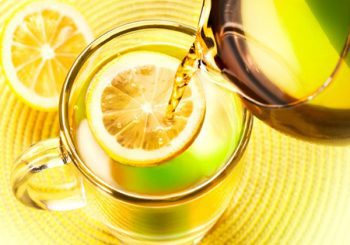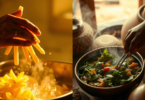Guest Writer for Wake Up World
Sore throats are one of the most common reasons people go to the doctor and they tend to affect children the most.[1, 2] A sore throat is usually considered a minor complaint until you have one and every swallow induces pain — pain that may seem unbearable. Unfortunately, the only option is to treat the symptoms and rest until you recover. Fortunately, there are many natural remedies that can soothe a sore throat and there’s a good chance you already have many of them in your home.
[pro_ad_display_adzone id=”110028″]
Common Sore Throat Causes
There are many potential causes of a sore throat, viruses are the most common. In fact, viruses account for about 95 percent of sore throats.[2] Common causes of a sore throat include:[3, 4]
- Allergies
- Dry air
- Pollution
- Smoking
- Exposure to people with a sore throat
- Cold
- Flu
- Strep throat (bacterial)
- Tonsillitis
- Weak immune system
- Acid reflux
Common Sore Throat Symptoms
Isn’t a sore throat truly a symptom itself? Yes, but as you probably already know, not all sore throats are the same and some are more severe than others. You might have one that only makes your voice a little hoarse, or it might be a serious impediment to your ability to breathe comfortably. Some of the most common symptoms of a sore throat are:[2]
- Pain when swallowing
- Difficulty swallowing
- Dry and itchy throat
- Swollen glands around the neck and throat
- Hoarse voice
A sore throat is also a first symptom of the common cold and flu, but you might have other symptoms such as fever, runny nose, congestion, headache, abdominal pain, or vomiting. Consult your trusted healthcare provider if your sore throat lasts longer than one week.
Best Home Remedies for Sore Throat
Don’t fear; many home remedies can soothe a sore throat. Below are some of the best.
1. Drink Warm Fluids
If you have a cold, make sure you’re taking in plenty of fluids. Nothing feels better than warm tea and thin soup when you’re sick. When your throat is raw and inflamed, drinking warm beverages keeps your throat moist and comfortable. Black tea might be the obvious choice, but give green or oolong tea a chance if Earl Grey just isn’t your, well, cup of tea.
2. Gargle Salt Water
For fast relief from sore throat pain, gargle eight ounces of warm water with half a teaspoon of salt. You may have heard of this practice before and dismissed it as an old wives’ tale, but it does work and many people swear by it.[5]
3. Use a Humidifier
If there’s anything that can make a sore throat even worse, it’s harsh, dry air. Use a humidifier to add moisture to the air around you. In one study, using a humidifier reduced the severity of sore throat pain.[6] If you’re experiencing other symptoms like upper respiratory congestion, try adding an essential oil like eucalyptus oil to the humidifier to loosen and help expel excess mucus.[7]
4. Raw Honey & Black Seed Oil
Honey may not be suitable for vegans. However, honey does offer many benefits. Add a teaspoon of raw honey to your tea, or take a spoonful by mouth to soothe your sore throat. As an added bonus, honey significantly improves cough symptoms.[8]
You can spike your honey with therapeutic spice by adding two to three drops of black cumin seed oil (also called black seed oil) to your honey. Like herbal teas, black cumin seed oil is an anti-inflammatory and can help soothe the pain.[9, 10]
5. Cold Food
Drinking or eating something cold soothes an irritated throat almost immediately. Instead of ice cream or ice pops, opt for whole fruit sorbet or make your own fruit pops to soothe the irritation.
6. Herbal Tea
Many varieties of herbal tea are effective at soothing a sore throat. Chamomile, lavender, echinacea, sage, ginger, peppermint, and licorice root tea all have antioxidant and anti-inflammatory effects.[11, 2, 12, 13, 14] Peppermint, in particular, relieves upper respiratory congestion by improving lung function and the ability to breath through your nose.[15] If you need to add a little sweetener, stir a teaspoon of honey or elderberry into your herbal tea. Love garlic? Try this garlic tea recipe.
7. Essential Oils: Lavender, Eucalyptus, & Myrrh
Myrrh[16] and eucalyptus are effective for soothing a sore throat but don’t take them as a tea. Instead, inhale the vapors by using a diffuser or humidifier. You can also gargle with myrrh like a mouthwash.
Apply one or two drops of food-grade lavender oil, specifically and exclusively from the Lavandula angustifolia species, to the back of your tongue or throat to relieve the pain from a dry, scratchy throat. The taste isn’t overwhelming and the only side effect is fresh, floral-smelling breath.
8. Spices: Cayenne, Turmeric, Ginger, & Clove
Cayenne might seem counterintuitive for a sore throat but, after the burn, it provides relief by numbing the pain.[17] To make, add one tablespoon of cayenne pepper to a quarter cup of warm water. Mix in the cayenne completely, take a mouthful, tilt your head back, and gargle. If you can’t handle a lot of spice, this might not be the best solution.
Turmeric and ginger both have long histories as therapeutic plants.[18] Drinking ginger juice alleviates sore throat pain. You can also make a tea with fresh ginger. Turmeric contains curcumin, which is very soothing.[19] You can make a turmeric gargle to soothe a sore throat, just like cayenne, but without the sting.
Make a clove tea, clove calms inflammation and eases the discomfort associated with a sore throat.[20]
9. Propolis
Propolis offers multiple health benefits, especially for those suffering from an upper respiratory infection. If you’ve never heard of it, propolis is made of plant material, beeswax, and, well, bee saliva. It is useful against most types of harmful organisms, even the flu virus.[21, 22] Take it by adding five drops of propolis to a teaspoon of water.
10. Honey & Elderberry
Honey with elderberry is my favorite combination and goes great with a few sprays of Allertrex®. Elderberry reduces the severity of the common cold and flu symptoms and may shorten the duration of the illness.[23] Add a little elderberry syrup to your honey and stir into your tea or simply take it by mouth. If you use fresh elderberries, make sure to cook them thoroughly; raw elderberries are not safe to eat.
How to Prevent a Sore Throat
The best strategy is to avoid catching a sore throat in the first place. Reduce your chances by washing your hands and limiting your exposure to sick people. Avoid smoking and secondhand smoke, which may irritate your throat. Strengthen your immune system by eating cruciferous vegetables and carotenoid-rich tomatoes.[24, 25] For more tips, check out our How to Stay Healthy During the Winter article.
There are, of course, many types of lozenges, sprays, gargles, and, recently, pain strips but be careful with OTC medicine as it may have very real side effects. Conversely, most of the remedies described in this article do not have unpleasant side effects.[26]
What home remedies do you use to soothe a sore throat? Tell us below!
References:
- Schapowal, A, et al. “Echinacea/sage or Chlorhexidine/lidocaine for Treating Acute Sore Throats: A Randomized Double-Blind Trial.” European Journal of Medical Research 14.9 (2009): 406. Web.
- Worrall, Graham J. “Acute Sore Throat.” Canadian Family Physician 53.11 (2007): n.pag. Web. 12 Dec. 2016.
- CDC. “Sore throat.” Centers for Disease Control. CDC, 23 July 2015. Web. 12 Dec. 2016.
- “Sore throat.” Medline Plus. National Library of Medicine, 21 Oct. 2016. Web. 12 Dec. 2016.
- “Strep throat.” Medline Plus. 2 Dec. 2016. Web. 12 Dec. 2016.
- Jung, Tae Hyeng, et al. “The Effect of the Humidifier on Sore Throat and Cough After Thyroidectomy.” Korean Journal of Anesthesiology 61.6 (2011): 470–474. Web. 12 Dec. 2016.
- Wilson, Roberta. The Essential Guide to Essential Oils: The Secret to Vibrant Health and Beauty. United States: Avery Publishing Group Inc.,U.S., 2016. Print.
- Paul, IM, et al. “Effect of Honey, Dextromethorphan, and No Treatment on Nocturnal Cough and Sleep Quality for Coughing Children and Their Parents.” Archives of pediatrics & adolescent medicine. 161.12 (2007): 1140–6. Web. 12 Dec. 2016.
- Ali, B. H., and Gerald Blunden. “Pharmacological and Toxicological Properties of Nigella Sativa.” Phytotherapy Research 17.4 (2003): 299–305. Web.
- Padhye, Subhash, et al. “From Here to Eternity – the Secret of Pharaohs: Therapeutic Potential of Black Cumin Seeds and Beyond.” 6.b (n.d.): 495–510. Web. 12 Dec. 2016.
- Srivastava, Janmejai K, Eswar Shankar, and Sanjay Gupta. “Chamomile: A Herbal Medicine of the Past with Bright Future.” 3.6 (2010): 895–901. Web. 12 Dec. 2016.
- Dugasani, Swarnalatha, et al. “Comparative Antioxidant and Anti-Inflammatory Effects of [6]-Gingerol, [8]-Gingerol, [10]-Gingerol and [6]-Shogaol.” Journal of Ethnopharmacology 127.2 (2010): 515–520. Web. 12 Dec. 2016.
- McKay, Diane L., and Jeffrey B. Blumberg. “A Review of the Bioactivity and Potential Health Benefits of Peppermint Tea (Mentha Piperita L.).” Phytotherapy Research 20.8 (2006): 619–633. Web.
- Wu, Tien-Yuan, et al. “Anti-Inflammatory/Anti-Oxidative Stress Activities and Differential Regulation of Nrf2-Mediated Genes by Non-Polar Fractions of Tea Chrysanthemum Zawadskii and Licorice Glycyrrhiza Uralensis.” The AAPS Journal 13.1 (2010): 1–13. Web.
- Balakrishnan, Aishwarya. Therapeutic Uses of Peppermint –A Review. 2015. Web. 12 Dec. 2016.
- N, Rashed, et al. “Components, therapeutic value and uses of myrrh.” Die Pharmazie – An International Journal of Pharmaceutical Sciences. Avoxa – Mediengruppe Deutscher Apotheker GmbH, 1 Mar. 2003. Web. 12 Dec. 2016.
- Mortensen, Jonathan M., and Joel E. Mortensen. The Power of Capsaicin. n.d. Web. 12 Dec. 2016.
- Baliga, et al. “Update on the Chemopreventive Effects of Ginger and Its Phytochemicals.” Critical reviews in food science and nutrition. 51.6 (2011): 499–523. Web. 12 Dec. 2016.
- Lim, T. K. Edible Medicinal and Non-Medicinal Plants: Volume 12 Modified Stems, Roots .. N.p.: Springer, 2016. Print. 12 Dec. 2016.
- Recent Trends in Indian Traditional Herbs Syzygium Aromaticum and its Health Benefits. 2016. Web. 12 Dec. 2016.
- Marcucci, M. C. “Propolis: Chemical Composition, Biological Properties and Therapeutic Activity.” Apidologie 26.2 (1995): 83–99. Web. 12 Dec. 2016.
- Ramos, A F N, and J L Miranda. “Propolis: A Review of Its Anti-Inflammatory and Healing Actions.” Journal of Venomous Animals and Toxins including Tropical Diseases 13.4 (n.d.): 697–710. Web. 12 Dec. 2016.
- Tiralongo, Evelin, Shirley S. Wee, and Rodney A. Lea. “Elderberry Supplementation Reduces Cold Duration and Symptoms in Air-Travellers: A Randomized, Double-Blind Placebo-Controlled Clinical Trial.” Nutrients 8.4 (2016): n.pag. Web. 12 Dec. 2016.
- Veldhoen, M, and V Brucklacher-Waldert. “Dietary Influences on Intestinal Immunity.” Nature reviews. Immunology. 12.10 (2012): 696–708. Web. 12 Dec. 2016.
- Watzl, Bernhard, et al. “Modulation of Human T-Lymphocyte Functions by the Consumption of Carotenoid-Rich Vegetables | British Journal of Nutrition | Cambridge Core.” British Journal of Nutrition 82.5 (1999): 383–389. Web. 12 Dec. 2016.
- “Over-the-counter medicines.” Medline Plus. 2 Dec. 2016. Web. 12 Dec. 2016.
Originally published at Global Healing Center and reproduced here with permission.
About the author:
Dr. Edward F. Group III (DC, ND, DACBN, DCBCN, DABFM) founded Global Healing Center in 1998 with the goal of providing the highest quality natural health information and products. He is world-renowned for his research on the root cause of disease. Under his leadership, Global Healing Center earned recognition as one of the largest natural and organic health resources in the world. Dr. Group is a veteran of the United States Army and has attended both Harvard and MIT business schools. He is a best-selling author and a frequent guest on radio and television programs, documentary films, and in major publications.
Dr. Group centers his philosophy around the understanding that the root cause of disease stems from the accumulation of toxins in the body and is exacerbated by daily exposure to a toxic living environment. He believes it is his personal mission to teach and promote philosophies that produce good health, a clean environment, and positive thinking. This, he believes, can restore happiness and love to the world.
For more, please visit Global Healing Center.
[pro_ad_display_adzone id=”110027″]








